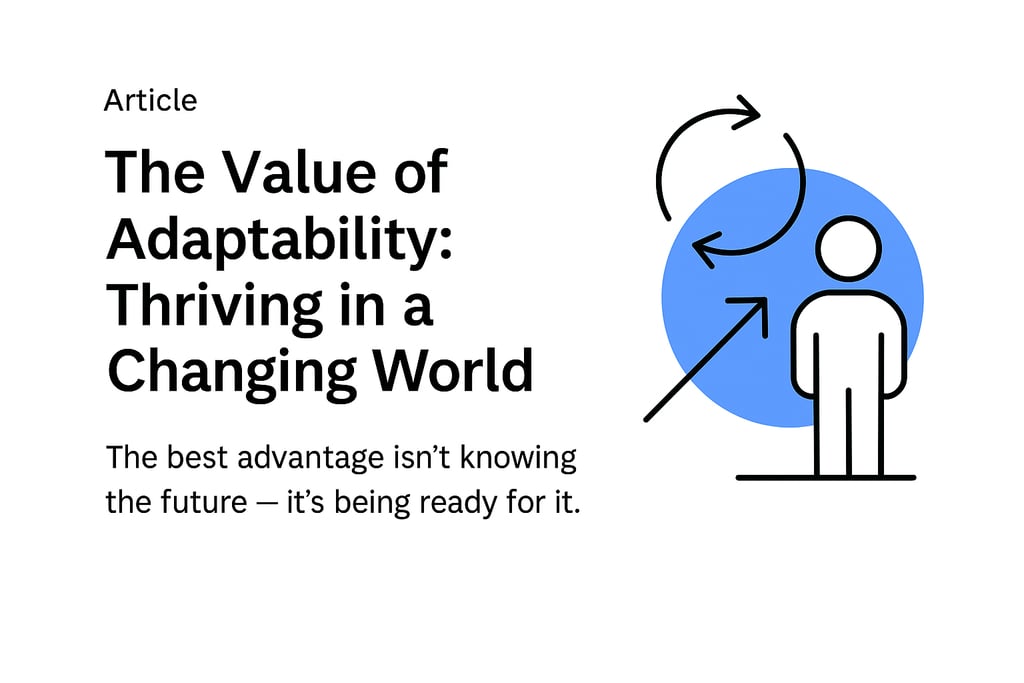The Value of Adaptability: Thriving in a Changing World
The best advantage isn’t knowing the future — it’s being ready for it.
ANDHIKA & CO.
Andhika & Co. Insight Team
8/10/20251 min read


Change is no longer an exception — it’s the default. The question is no longer “Will things change?” but “How will we respond when they do?”
For decades, success was built on stability. The most reliable companies, careers, and systems were the ones that stayed the same for as long as possible. Today, the opposite is true.
Industries transform overnight. Skills lose relevance in a few years. Technology moves faster than regulation. And global events — from pandemics to market shifts — can rewrite the rules instantly.
In this environment, adaptability isn’t just a nice-to-have. It’s the foundation for survival and growth.
What Adaptability Really Means
Adaptability isn’t about being reactive or constantly changing direction.
It’s about being flexible with purpose. It means:
Recognizing change early — spotting patterns before they become problems.
Adjusting without losing focus — shifting tactics without abandoning core values.
Learning quickly — taking lessons from every win and failure.
The most adaptable people and organizations don’t just survive change — they use it to move ahead.
Why It Matters Now
Research shows that adaptable teams outperform less flexible ones in uncertain markets. They innovate faster, manage risks better, and retain talent longer.
For individuals, adaptability means staying employable in a world where job descriptions evolve constantly. For leaders, it means steering organizations through turbulence without losing direction.
And adaptability doesn’t mean abandoning long-term plans — it means updating them to match reality.
Building Adaptability
Here are three practical ways to build adaptability, starting today:
Challenge your assumptions
Ask: “What if the rules change tomorrow?” It forces you to think beyond current conditions.Stay curious
Read outside your field. Learn from different industries. Fresh perspectives fuel flexibility.Practice small changes
Experiment with new tools, workflows, or approaches. Small changes make big shifts less intimidating.
Final Thought
The future will belong to those who can evolve without losing their core.
Adaptability is not about predicting every twist — it’s about building the resilience and creativity to handle them when they arrive.
Because in a changing world, the best skill you can have isn’t certainty.
It’s readiness.

